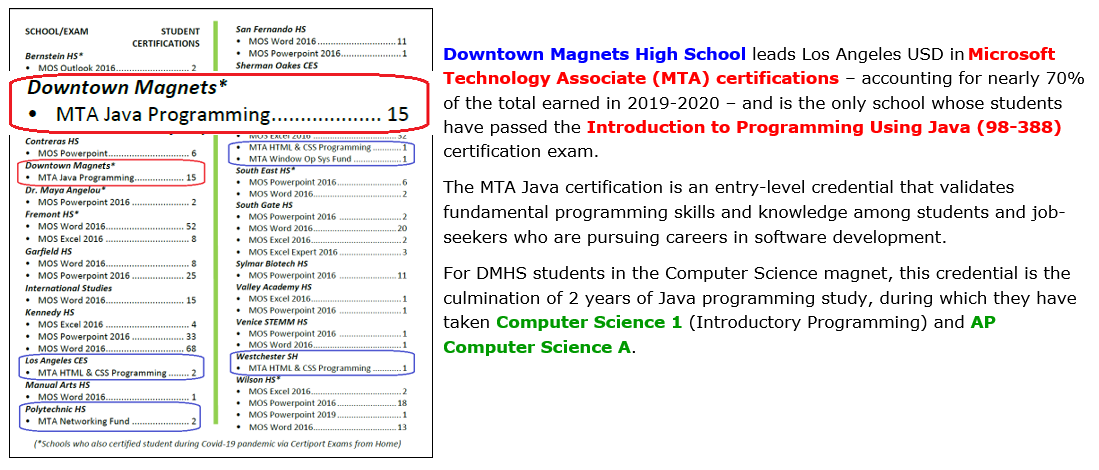
Table of Assignments / ICT AP-CSA Curriculum

Congratulations to the fifteen 2019-2020 DMHS Computer Science students who earned MTA Certifications!
Sophomores: Joey (Junhwan) Lim, Ayline Orihuela, Nicholas Tran, Tyler Tran, Rodrigo Vallejo
Juniors: Genesis Gumban, Reese Henson, Jimmy Le, Alex Redford, Chanh Tran
Seniors: Wesley Jiang (UC Berkeley), Abrar Karim (UC Berkeley),
Jason Li (M.I.T.), Camilo Morales (Harvey Mudd College), Kirsten Tapalla (Brandeis University)
|
|
||
| Multiple Comets | Dynamic Word Cloud |
|
| |||||
| Student Work/Projects | |||||
|
|
|||||
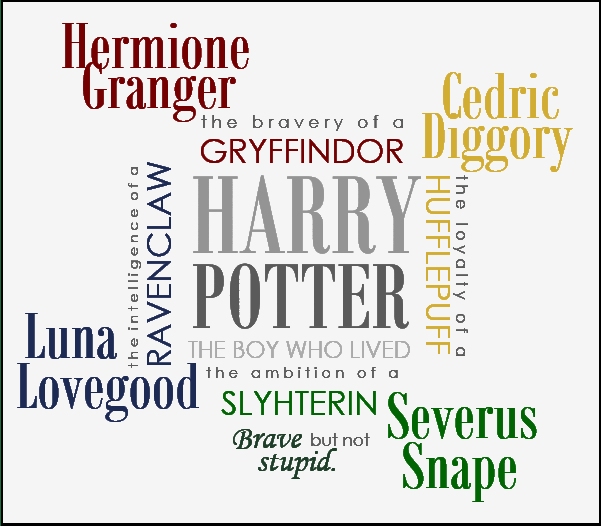
CS Year 1: Word Clouds |
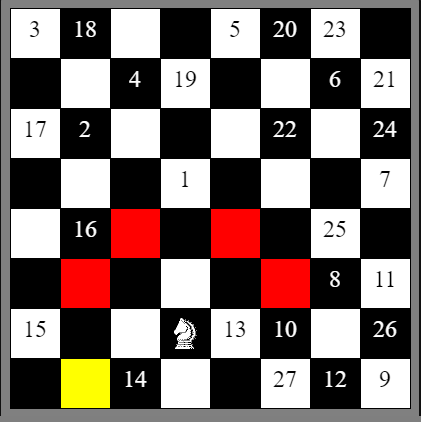
CS Year 2 (AP Computer Science): Knight's Tour AI (Artificial Intelligence) |
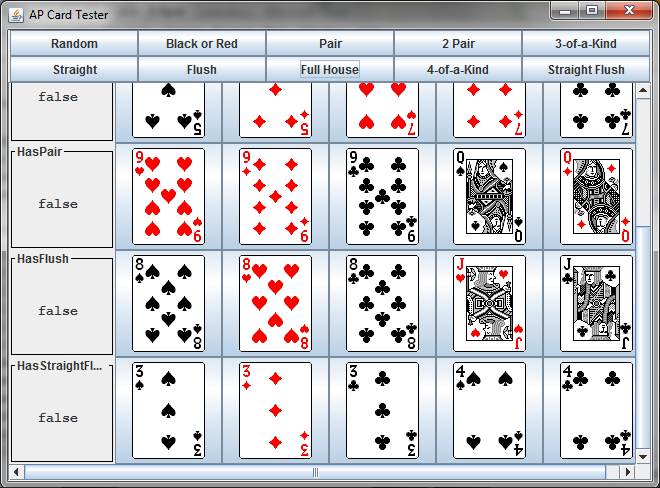
CS Year 2 (AP Computer Science): Playing Cards, Evaluating Poker Hands |
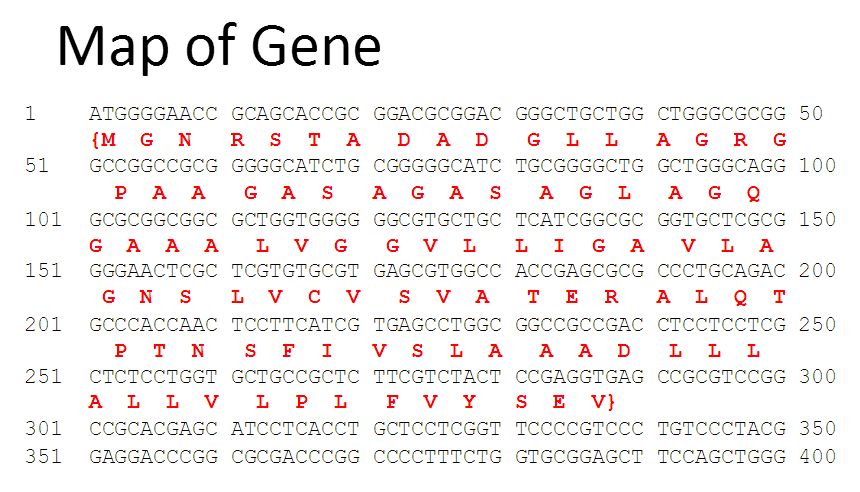
CS Year 3: Finding Introns and Exons Computationally |
||
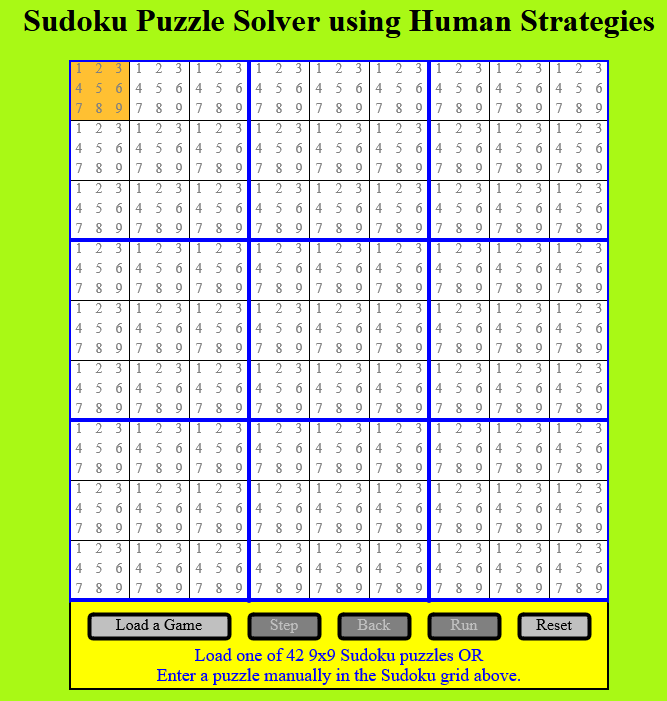
CS Year 2 (AP Computer Science): Sudoku Puzzle SOLVER |
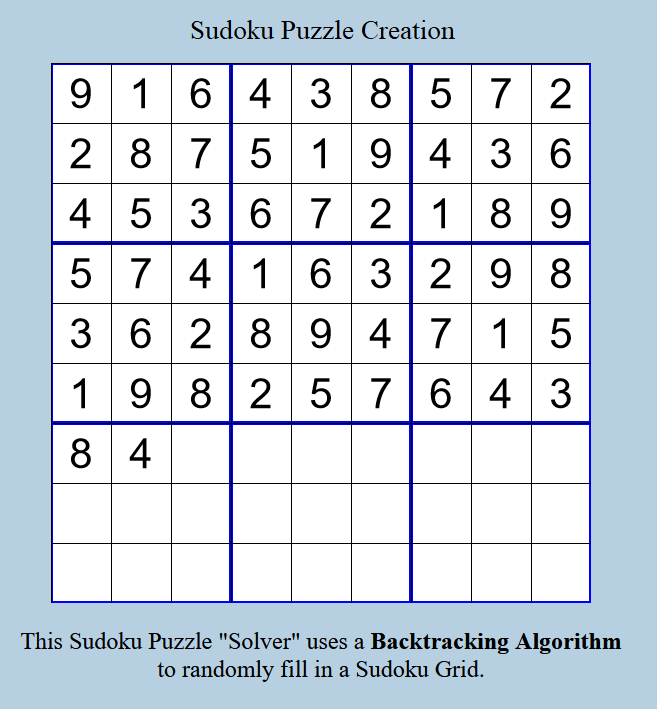
CS Year 2 (AP Computer Science): Sudoku Puzzle Generator, Part 1 (Recursion) |
Ukraine War 2022 (Generative Art) |
|||
|
Word Cloud Self-Assembly (Java Adv DS) | |||||
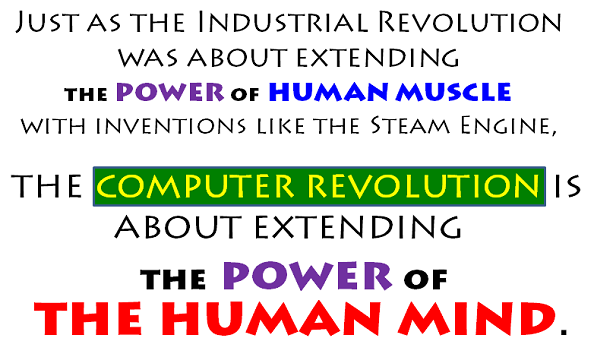
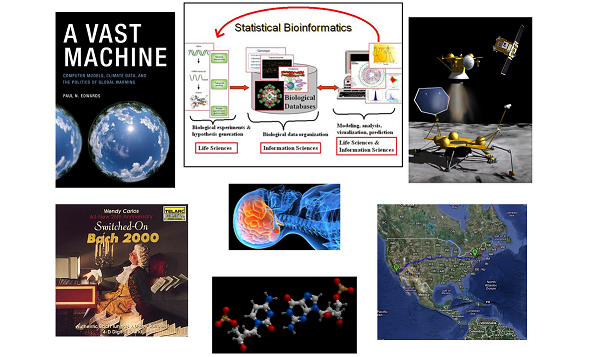
|
Most people have some familiarity with the
|
|
Whatever the application, though, the ability to PROGRAM
|
*Unfortunately, most "Computer Science" programs in LAUSD
|
|
A myth persists in popular culture
The analogy to learning a
|

|
|
This research finding has
sobering implications for how students actually learn to program ... ... and for teaching as well. |
Portnoff, Scott R. Unpublished Blog (August 2020)
Portnoff, Scott R. ACM Inroads 11,2 (June 2020), 22-45. doi: 10.1145/3381026
Portnoff, Scott R. ACM Inroads 9,2 (June 2018), 34-52. doi: 10.1145/3152433
Portnoff, Scott R.,
M.S. Thesis. California State University, Los Angeles, 2016, 262; 10132126
|
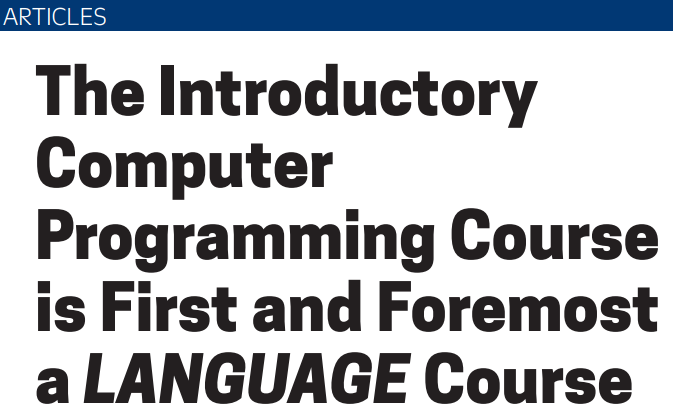
ACM Inroads 9, 2 (June 2018), Pages 34-52 |
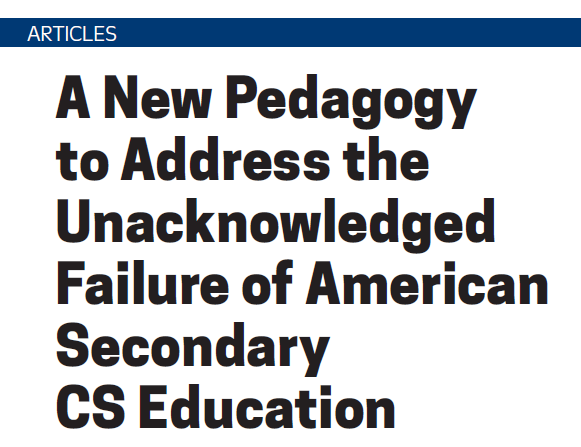
ACM Inroads, Issue 11, 2 (June 2020), Pages 22-45 |
|
The introductory/freshman programming course, a UCOP-approved "G"-elective, is called Computer Science 1: Animation, Simulation and Game Programming (a) The focus is on how CS can be used in the Real World, and(b) The course uses instructional strategies informed by principles from the field of Second Language Acquisition. Students learn the fundamentals of programming by writing Java applications (software programs) modeled after software programs that fill a SOCIAL or SCIENTIFIC PURPOSE*.
*For example, the Solar System program below
is modeled after Planetarium software
used for astronomical observations and space exploration.
which is a free and simple – but extremely powerful – programming development tool designed for Visual Artists to create computer art and animations.
Advanced Courses offered to students who successfully complete CS1 are:
|
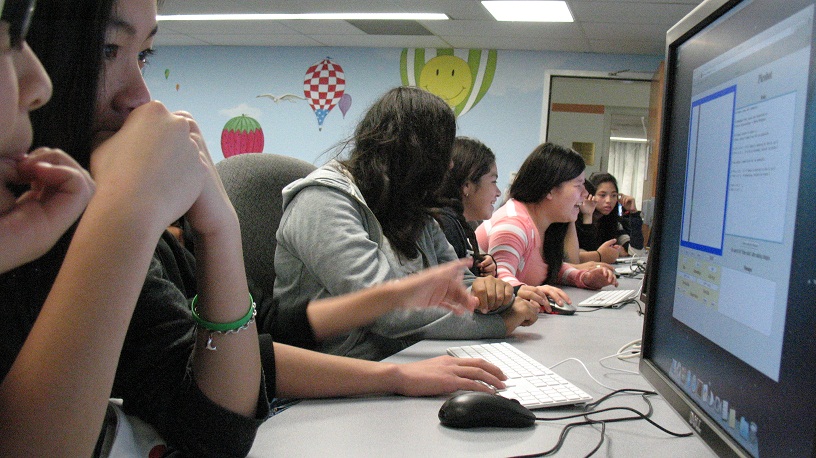
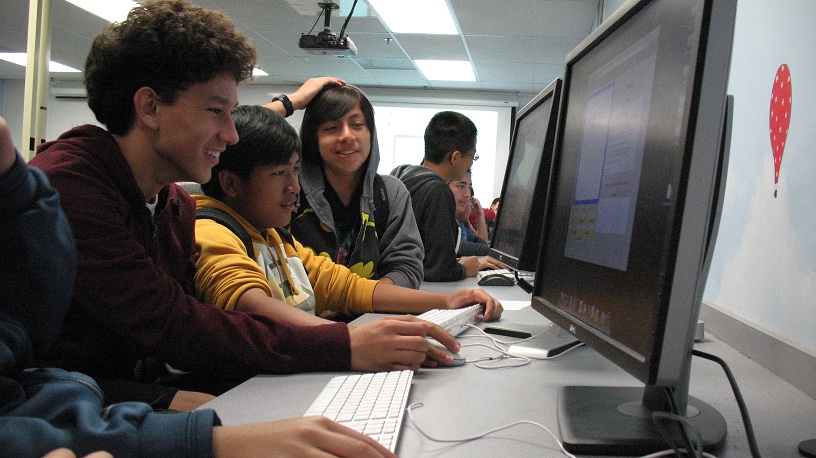
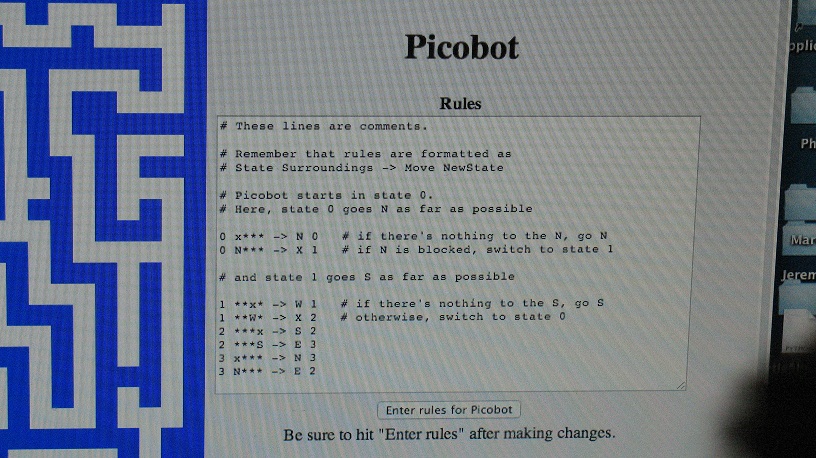
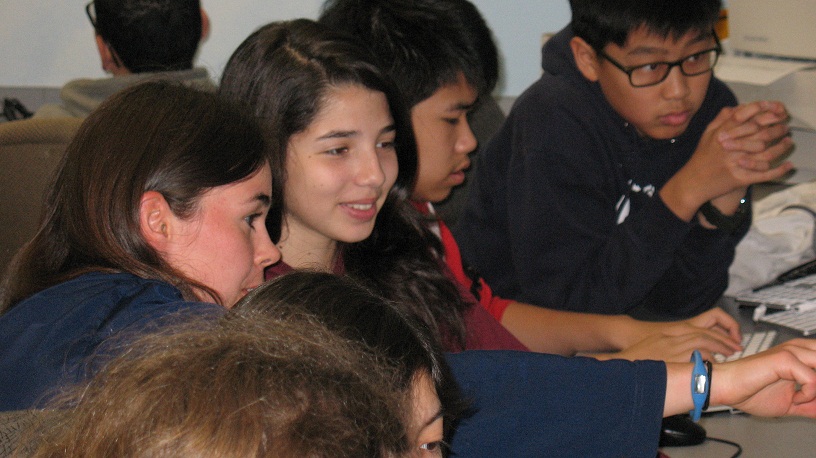
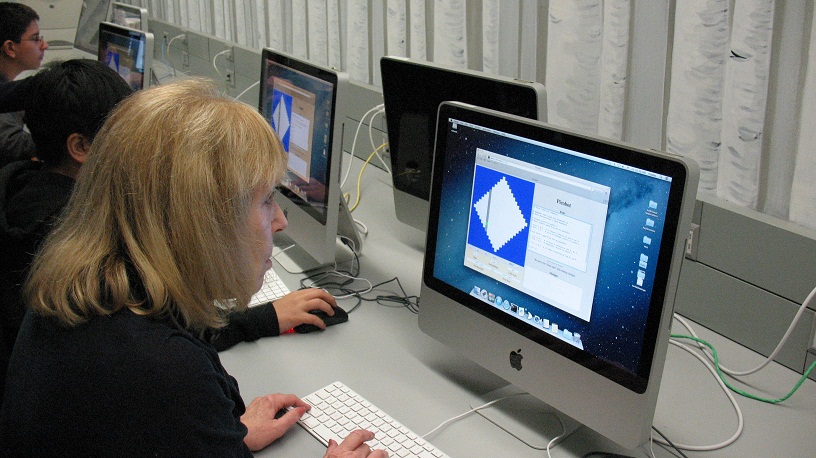
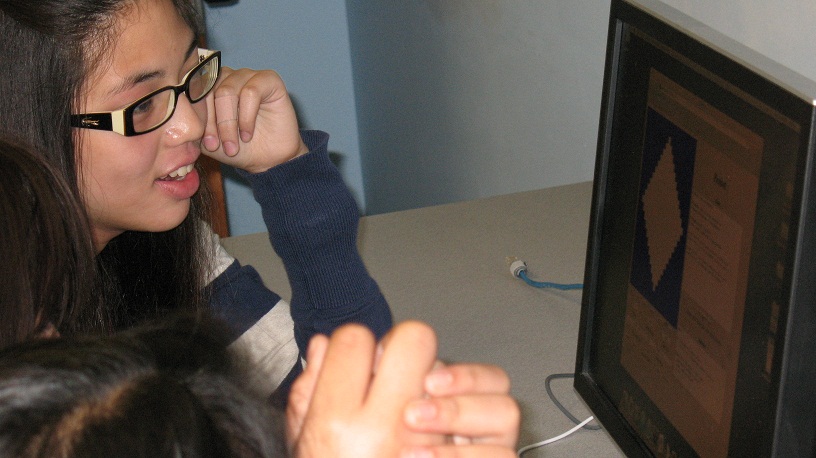
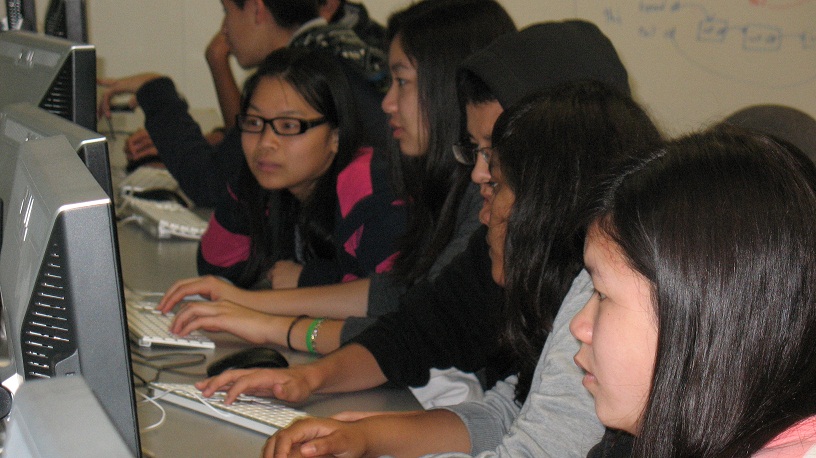
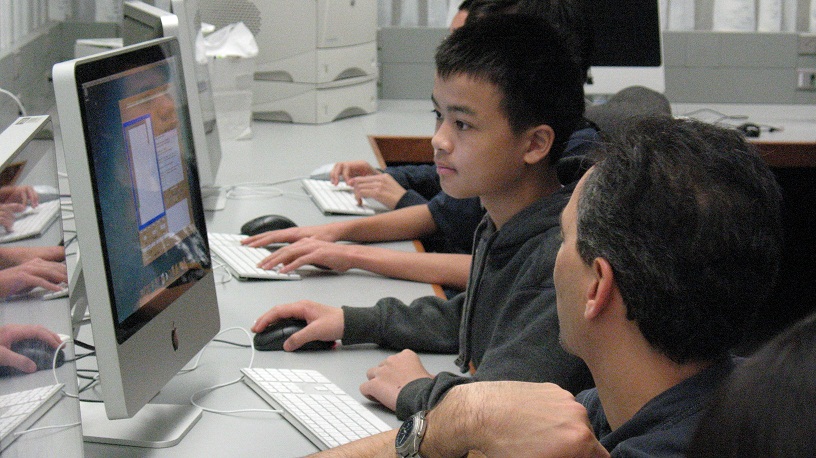
|
| Semi-Annual Field Trip to CS Dept at Harvey Mudd College (2013) |